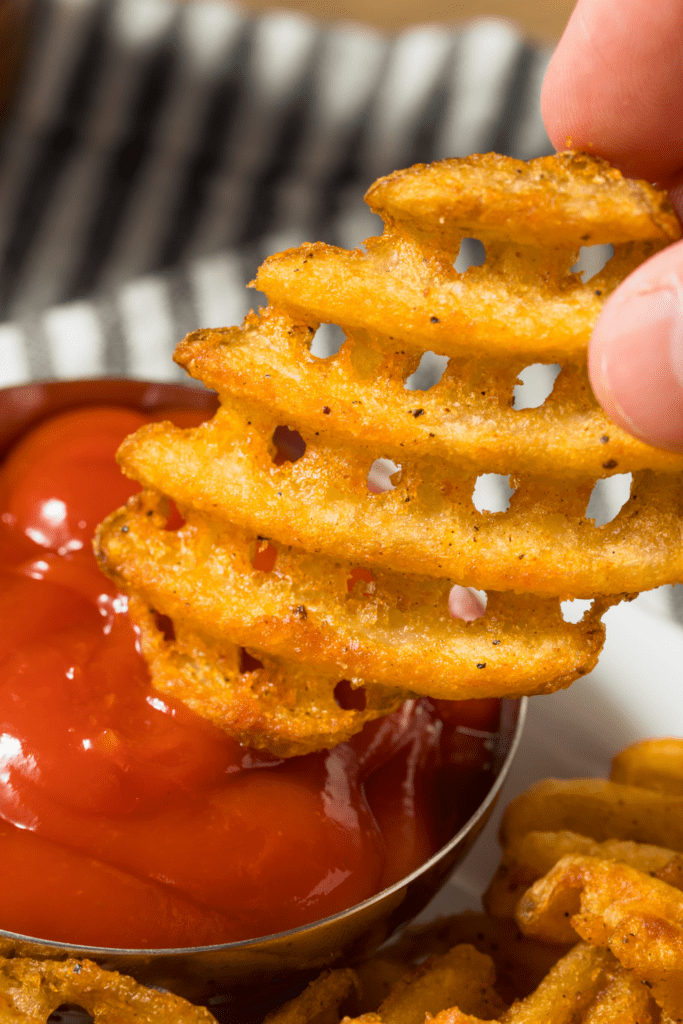Ketchup is America’s most beloved condiment, and for good reason. The sweet and tangy sauce is the perfect accompaniment to every fried dish you can think of. It tastes great on just about anything! The only downside is that store-bought ketchup is loaded with fructose and preservatives, which can’t be good for the body. The solution is simple: just make your own. Using natural ingredients, this DIY ketchup is not only a lot more healthful, it’s cheaper, too. And yes, it tastes just as good as any brand of ketchup. Move over Heinz: homemade ketchup is here, and it’s here to stay.
Homemade Ketchup
Ketchup is a thick sauce made from a blend of tomatoes, vinegar, sugar, and spices. The unique combination of flavors creates a sweet, tangy, and smoky condiment that’s perfect for a variety of meat dishes. I know what you’re thinking: why should I make my own ketchup when I can easily buy a bottle? Well, there are several reasons! First up, did you know that bottled ketchup contains a ton of sugar and preservatives? Check the label and you’ll see! If you love ketchup but don’t want all of those artificial ingredients in your body, homemade ketchup is the key. Also, it’s not as difficult as you think. Sure, it takes hours to cook, but your participation is barely required. This recipe is so simple, all it requires is 5 minutes of hands-on preparation. The slow cooker takes care of everything else. Last but not least, it’s fun and fulfilling! Believe me, making ketchup from scratch brings a different kind of satisfaction you won’t get from buying it at the store.
Ingredients
Canned Tomatoes – Every ketchup has tomatoes as its base. We’re using ground tomatoes in this recipe, but crushed works too. As it is the primary flavor source of ketchup, use a good-quality brand you really like. Sugar – The sweet element that balances out the acidity of the tomatoes and vinegar.Vinegar – For tanginess.Clove; Onion, Garlic, and Mustard Powders – To spice things up!Salt, Celery Salt, and Pepper – To taste.
Tips for the Best Ketchup
While this recipe is already perfect as it is, you can swap some of the ingredients to suit your diet. Here are some suggestions:Instead of sugar and water, use ⅓ cup of honey. Brown sugar works, too. Just add a little less since it’s much sweeter than granulated sugar. If you don’t want any fructose at all, skip out on the sugar and honey and throw in a large peeled carrot into the mix. This will cut the acidity from the tomatoes and vinegar, yielding perfectly-flavored ketchup. Just take out the carrot once cooked. Use actual minced onion, garlic, and celery, instead of powder.Swap white vinegar with apple cider vinegar. Use 2 ½ pounds of fresh tomatoes instead of canned. Cherry, San Marzano, and heirloom tomatoes make great options.For chunky ketchup, do not puree and strain the mixture.If the ketchup is too thick, just add a bit of water and stir. Adding water also helps tone down the acidity from the tomatoes and vinegar.Store homemade ketchup in an airtight container and refrigerate for up to 2 weeks.To make spicy ketchup, add pepper. Any of these will do the trick:red pepper flakescayenne pepperChili powderJalapenosHabanero peppersGhost pepper
Where Does The Name Come From?
Ketchup may be the quintessential American condiment, but it actually originated in Asia. Bet you didn’t know that! I was surprised to find that out, too. The word “ketchup” was derived from the Chinese term, “kê-tsiap,” a type of fermented fish sauce. While uncertain, the condiment was most likely introduced by Vietnamese seafarers to China. It was later on introduced in Malaysia and Indonesia, where its name was changed to ketchap and ketjap, respectively. Upon discovery of the sauce during an Asian expedition, English sailors tried to replicate it back home. Numerous attempts included ingredients such as walnuts, anchovies, and mushrooms. The Brits then took their mushroom-infused condiment to America, where it went through even more changes. Eventually, tomatoes were thrown into the mix, transforming the condiment into the ketchup we know and love today.
Can I Make No-Cook Ketchup?
Absolutely. It won’t be as flavorful as cooked ketchup, but it’s still tasty and comes together in no time. It’s ready for dipping in just 5 minutes. This simplified version calls for tomato paste instead of canned tomatoes, which is why there’s no cooking required. All you need are a few simple ingredients. Then combine in a blender and blend until smooth. Click on a star to rate it!
Average rating 5 / 5. Vote count: 2 No votes so far! Be the first to rate this post.
Share on social media: Let us improve this post!











